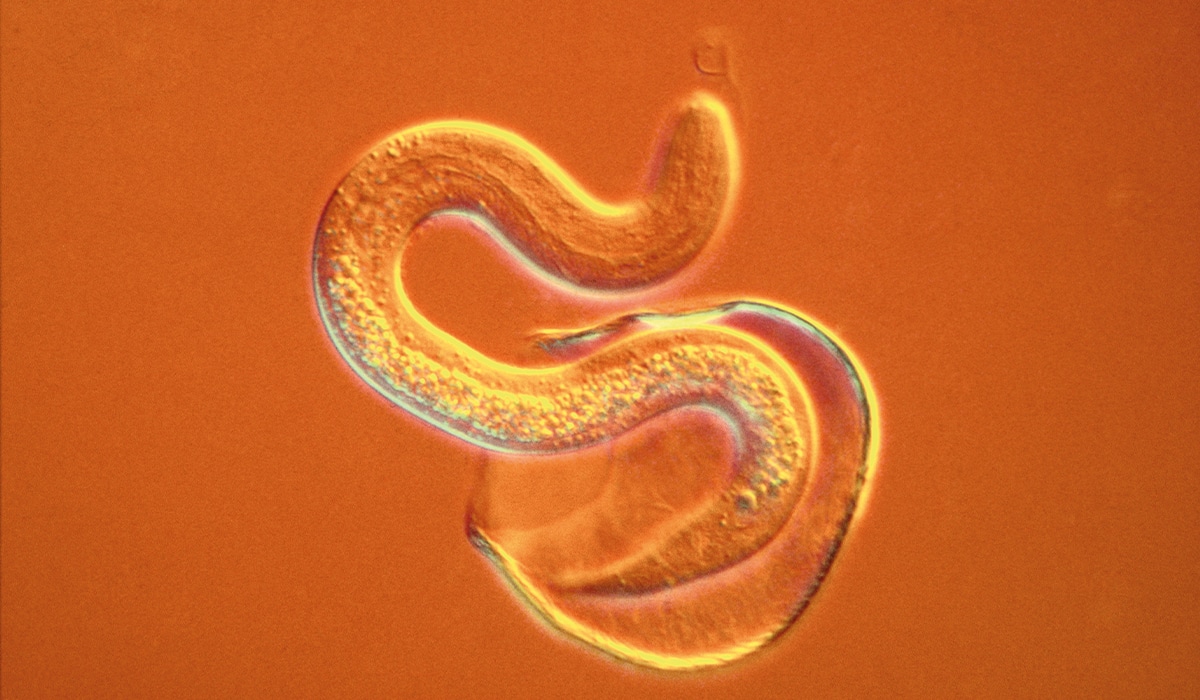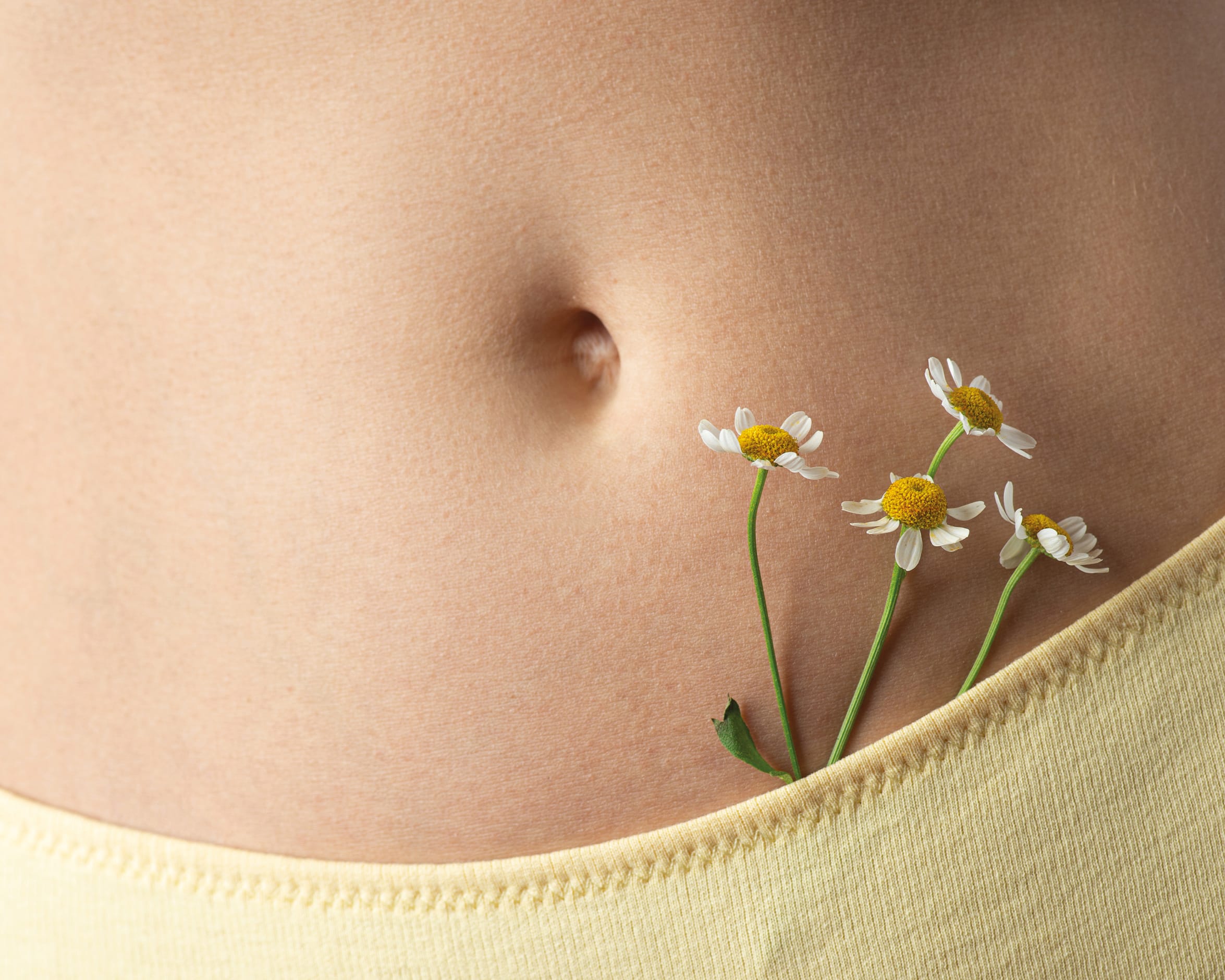Parasite cleansing has gone viral on TikTok – but are the ‘detox’ methods influencers suggest the best way to deal with intestinal worms?
The ‘parasite cleanse’ trend has been around for a while but reached a new level last year, with the likes of influencer Kerry McDonald posting about it on TikTok, and hashtags of the topic soared to 450 million.
“I know I have parasites, I have all the symptoms,” Kerry told her followers, listing vomiting, bloating, IBS (irritable bowel syndrome) and other gut issues. Brandishing a bottle of ParaGuard liquid drops, she said that after a dose, she passed something long and worm-like. “I took a photo, but I’m not going to do that to you guys!”
Don’t believe everything you see online
There have been countless posts to similar effect, listing ‘parasite symptoms’ from abdominal pain, gas, bloating and constipation to brain fog, teeth grinding, anxiety, insomnia, acne – even endometriosis and herpes.
The cleanses suggested centre largely on herbal supplements like ParaGuard, which according to the website of the company that makes it, contains “wormwood, pumpkin seed, garlic bulb and more”. While these are natural ingredients and unlikely to cause harm, they are supplements – not medicines – so their efficacy and safety is not scientifically verified. Some ‘parasite cleaners’ have been found to include ingredients such as chlorine dioxide and turpentine, which are dangerous, and can even be fatal.
“Patients should be very careful,” says Dr Deseré Ferreira, a GP in Pretoria. “Most of the ‘natural’ medication available basically means ‘not tested on enough patients to exclude dangerous side effects’. Rather stick with medication from your doctor with enough research to back it.”
A particularly explosive video, drawing seven million views in six days, shows a young woman soaking her feet in a ‘parasite- cleansing’ foot bath said to contain Epsom salts, apple cider vinegar and bentonite clay, and exclaiming in disgust as the camera shows ‘parasites’ emerging in the water: small, thin threads.
When Logically Facts, a British AI company that fights disinformation, sent the clip to medical researchers with specialist knowledge of parasites, they concluded that the ‘parasites’ were likely dirt and skin stuck together by soap, forming strings.
There seems no end to the trend, however, with ‘parasite cleansing’ racking up over
840 million views on TikTok alone in January this year. But how at risk are you of a genuine parasite infestation? And how best can you treat and prevent it?
Most of the ‘natural’ medication available basically means ‘not tested on enough patients to exclude dangerous side effects
Can foods fend off parasites?
‘Parasite cleansing’ diets often suggest the use of anti-inflammatory herbs and spices such as garlic, turmeric and ginger. They centre on switching to a wholefood diet and cutting back on processed foods. This may well improve your general health and support your immune system if you have a parasite infestation, which can disrupt nutrient absorption and lead to deficiencies in vitamins and minerals, but it will not keep worms at bay or kill those you have. For that, you will need an approved deworming product, say doctors Retief and Ferreira.
Parasite cleansers often contain natural ingredients and claim to have anti-parasite properties. Apart from a small study that found wormwood showed promise in reducing tapeworm levels, there appears to be no sound scientific research proving the efficacy of other ingredients commonly advised – such as black walnut, clove, grapeseed extract, oregano oil, neem, propolis, olive leaf and barberry. Some may also interact with certain medications, so always consult with your health provider before using them.

Do you have a worm?
Parasitic worms certainly exist, living in and feeding off the human body. And left unchecked, they can cause a range of complications, from loss of appetite and weight to anaemia, bowel obstruction, lung infection and liver congestion, says Mossel Bay gastroenterologist Dr Francois Retief. The World Health Organisation reports that intestinal worms are among the most common infections worldwide and affect the poorest and most deprived communities. It declares worms “a major public health problem” because they “disrupt people’s ability to absorb nutrients, impeding the growth and physical development of millions of children”.
There are many different types of worms, from roundworms (5–40cm long) found in the gut, to whipworms (6mm) which attach to the bowel lining and can cause bleeding, tapeworms (flat worms) that can grow up to 15 metres long, and hookworms (1cm), that enter the bloodstream from skin contact with contaminated soil and can travel to the heart and lungs.
Threadworms or ‘pinworms’ (about 5mm) are common and especially unpleasant, the adult female leaving the anus at night and laying eggs outside it, causing itching. Scratching can embed eggs under fingernails, which can spread the worms elsewhere, or reinfest the sufferer if they put their fingers in their mouth. In women, worms can infest the vagina and cause a discharge.
Anyone is susceptible to worm infestation, but children are most vulnerable, especially in informal settlements with poor access to clean water and proper toilets. This has prompted the SA government to include annual deworming in the Integrated School Health Programme, for pupils from Grade R to Grade 7 in quintile 1-3 public schools.
You can pick up eggs of parasitic worms anywhere, from contaminated soil, food, water, utensils and surfaces to human and animal faeces, toilet seats, door handles and pet fur. You can ingest them from unwashed hands, breathe them in, or they can enter your skin and bloodstream if you walk barefoot on contaminated soil.
Apart from an itchy bottom or genitals, signs of infestation can be easy to miss. They include diarrhoea, bloating and discomfort, increased appetite without weight gain, or loss of appetite, and unexplained coughing (some worm larvae can migrate through the bloodstream or lymph system to the lungs). “Inspect the toilet after you or your child has passed a stool – some worms can be seen with the naked eye,” says Dr Ferreira.
The safe way
The simplest and most effective way to prevent getting worms is to wash hands frequently and thoroughly, especially after using the toilet, before preparing or eating food, after touching pets and when you arrive home or have been outdoors. Also wash all fruit and vegetables well under clean running water, and cook all meat products thoroughly, say Dr Ferreira and Dr Retief.
It’s possible to pick up parasites despite your best precautions, and children can bring them home from crèche or school, spreading them and reinfecting themselves by putting their fingers in their mouth or nose.
The safest form of prevention is to deworm yourself and your family, caregivers and pets once every six months, though some doctors suggest this may be unnecessary in areas with low prevalence of worms. Be guided by a doctor or pharmacist, not by influencers who have no medical qualifications but may well have vested financial interests in the products they recommend and the hits they rack up from sensational claims.
Children can be dewormed from one or two years old, using liquid medication instead of pills, says Dr Ferreira.
“Vermox is available over the counter, but prescription medication for resistant infestation is also available. A stool sample can be sent to the laboratory to confirm the diagnosis.”
Medication kills adult worms in the digestive tract, but not the eggs, which is why you need to deworm regularly.
Words by: Glynis Horning
Photos: Gallo/Getty Images







